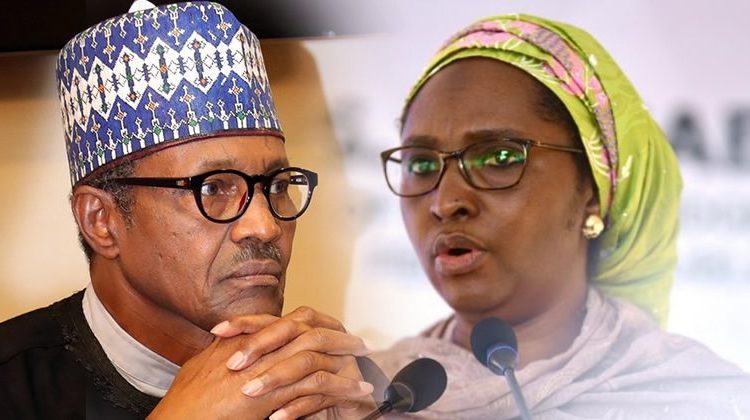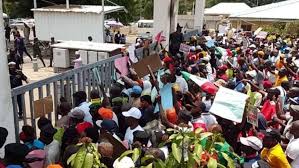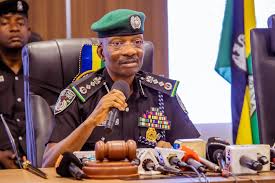
Mounting debts, fuel subsidy crisis: Mega burdens for new govt
The socio-economic challenges before whoever becomes Nigeria’s next president are daunting but contenders for the coveted seat have yet to impress Nigerians with their manifestos, OKECHUKWU NNODIM writes
Currently confronted with humongous debts, insecurity, high subsidies on Premium Motor Spirit, popularly known as “petrol,” depreciation of the naira, and other stiff challenges in various sectors, the country is fighting for its very existence.
Citizens of the country are gearing up to elect a new president in February among the top contenders who include the Labour Party’s Peter Obi; Atiku Abubakar of the Peoples Democratic Party; Bola Tinubu of the All Progressives Congress; and Rabiu Kwankwaso of the New Nigeria Peoples Party.
Although these contenders had reeled out their manifestos, which contained how they would tackle the myriad challenges confronting Nigeria, financial and energy experts told our correspondent that whoever eventually emerged as president would have to deliver beyond his manifestos.
This, according to the experts, was because some of the contenders had yet to impress Nigerians with what they would do when elected into office.
The analysts also explained that the challenges confronting Nigeria were more deep-rooted than the solutions proffered in the manifestos of the presidential candidates.
They, for instance, cited the country’s current debt burden as a major concern that should worry whoever emerges as president after the general elections in February.
Early this month, The PUNCH reported that Nigeria’s public debt burden might hit N77tn if the National Assembly approves the request by the President, Major General Muhammadu Buhari (retd.), to restructure the Ways and Means Advances.
The Ways and Means Advances is a loan facility through which the Central Bank of Nigeria finances the shortfalls in the government’s budget.
Deep-rooted problems
“The truth is that most of them (the presidential candidates) don’t understand the depth of our problems in Nigeria, as could be seen in their manifestos.
“This is because they are still outside, and no matter what they see from their positions, it is different from what you see when you are inside,” a former president of the Association of National Accountants of Nigeria, Dr Sam Nzekwe, stated.
He added, “So, it takes more than a committed person to be able to change the narratives that we see currently in Nigeria. If you look at the situation in Nigeria, a lot of things have gone wrong, for instance, the issue of fuel subsidies. How do you tackle that, because it is multi-dimensional?
“Now, because of the devaluation of the naira, the cost of virtually everything has gone up. How much is your cost of production? Mind you, we don’t produce refined petroleum products here; rather, we import them.
“When you factor in this, as well as the naira’s depreciation, you will see that the cost of the commodity will become so high that you may not be able to tell the exact amount of subsidy.”
Nzekwe explained that one of the key reasons for this was the dormancy of Nigeria’s refineries.
“If the refineries are working and you are producing fuel, then someone can say, this is how much I bought crude, and this is also how much it took me to produce. And then you will be able to calculate the actual subsidy on the product,” he stated.
“Therefore, to solve the problem of fuel subsidy removal, you must get the refineries working, because you cannot use petrol imports to decide on removing subsidy when some of the monies are going into individual pockets,” the ANAN ex-president added.
Nzekwe further pointed out that external shocks caused by the war in Ukraine were also negatively impacting Nigeria, adding that the crisis in the region had adversely affected the export of products that were required in Nigeria.
Commenting on the challenges in the agricultural sector, Nzekwe said whoever emerges as president should endeavour to halt the high level of insecurity being faced by farmers.
“The sector where we have a comparative advantage, agriculture, is grossly hit by insecurity. You can’t go to the farms, if you do, Boko Haram, kidnappers, or bandits will catch you. People are now scared of farming. So insecurity has to be tackled headlong,” he stated.
In the power sector, the economic expert said the government had not given the industry the attention it needed concerning tackling concerns associated with power generation, transmission, and distribution.
He said, “There is no way the economy can improve without power. How can you improve without electricity? It is not possible. Every time you are using generators; what are you going to produce? What will be the cost of your output?
“Now, since you don’t have power, your cost of production will become too high and when linked to the devaluation of the naira, you will realise that it becomes difficult to buy things.
“These are some issues the in-coming government should be looking at. When they talk about economic development and so on, they must realise that they have to provide an enabling environment. If not, the economy will not work.”
Nzekwe condemned the overbloated cost of governance in Nigeria, stressing that politicians must cut down on their excesses.
He described Nigeria’s debts as “a terrible thing,” adding that this was “because the cost of financing the interest on these loans is almost half of the country’s revenue. So where will you go from here? We are not making any move.”
Credit : Punch News.





